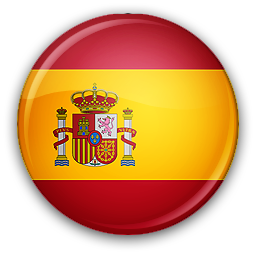Choose your preferred language


To facilitate a harmonized and effective implementation of the assessment systems, the Welfare Quality Network will help to define the conditions of use and describe the sorts of claims that can be made on the basis of the outcomes of the assessments. The Network is also available to evaluate implementation plans proposed by stakeholders and to advise on compliance with the defined conditions of claims.
More information in this PDF file.
The assessor is a ‘critical component’ of every certification and inspection scheme. Appropriate and recognized training in the use and practical application of the welfare assessment protocols is essential to ensure uniform scoring. Moreover, assessors should be regularly re-evaluated when they are active in the field to ensure retention of objectivity, impartiality and repeatability in scoring. The Welfare Quality Network is available to ‘train trainers’ and to evaluate the training programmes delivered by such trained trainers. The Network can also facilitate and/or participate in the regular re-evaluation of assessors.
More information in this PDF file.
The application (by trained assessors) of Welfare Quality® assessment systems in livestock production will generate data from individual farms all over Europe (and beyond). The Network is available to support the correct handling of data and its processing into integrated welfare assessment scores. This support includes for instance:
To benefit of these services, please visit WAFA.
The large amounts of data (results from measures and calculated scores) from the above activities will be carefully stored to ensure the safe and steady accumulation of knowledge. Data collected at several locations and at various intervals can subsequently be used (with appropriate protection of private and commercial interests) to:
Stimulating the Adoption of the Welfare Quality® Assessment System
Activities envisaged here include: advisory services; specific training and support to help farmer organizations or farmer – retailer groups; quality assurance checks to ensure that the system is used correctly; etc. Continued research and development aimed at extending and refining the Welfare Quality® assessment system for application in other species will also stimulate its adoption. Maintenance and upgrading of the Information Resource on practical welfare improvement strategies will also play an important role in this respect (see below).
Welfare Quality® established a website to provide information on the progress made in the project, its results and outputs. This website will be maintained by the Welfare Quality Network in order to continue the dissemination of information on animal welfare and its assessment and on the application of practical welfare improvement strategies.
The Welfare Quality® protocols were published at the end of the project and were extremely well received. The protocols have only been published in English so far, but the Welfare Quality Network is available to support translations in other major languages and to check for the correctness and quality of such translations. It will also be necessary to regularly publish and disseminate new releases of the protocols.
The existing Welfare Quality® assessment protocols and evaluation models need to be regularly updated and refined on the basis of new scientific findings, societal developments, and practical experiences gained during implementation. For example, some new measures may prove easier to collect, or they may be more precise or more reliable than some contained in the current Welfare Quality® protocols.
The Welfare Quality Network can provide the necessary expertise for the stringent testing of validity, repeatability and robustness of a new measure as well as the necessary process to translate the data into a value score.
Currently, the Welfare Quality® scoring system proposes that animal units should be placed in one of 4 welfare categories according to the following rules:
It was recommended that after some years of implementation and visible improvements at farms and abattoirs, the requirements should be increased to:
On the basis of assessment data the Welfare Quality Network can establish what levels are actually achieved for the different measures on farms and in slaughterhouses. Such data represent essential input to a consultation and negotiation process with stakeholders to determine whether there has been sufficient welfare improvement to allow implementation of the second set of rules.
The provision of sound advice on ways of avoiding welfare risks or resolving problems is critical for the uptake and implementation of the Welfare Quality® assessment systems and for improving farm animal welfare in general. Remedial measures developed within and outside the Welfare Quality® project are described in a Technical Information Resource which also details the causes and consequences of welfare problems. The Welfare Quality Network can maintain, update (as new results emerge), extend (to include new strategies and new species) and disseminate this resource.
More information in this PDF file.
The active participation of a broad range of stakeholders (farmers, breeders, retailers, certification bodies, NGOs, national governments etc) in the actual research and in an advisory capacity greatly facilitated the uptake of Welfare Quality® outcomes and helped to guide the development of follow-on projects. Through collaborative ventures with for instance the European Animal Welfare Platform, a multi-stakeholder project committed to safeguarding and progressing farm animal welfare, the partners in the Welfare Quality Network aim to promote further stakeholder involvement.
Through experience gained during the management of the systems and the efforts to support implementation, areas requiring further research are expected to be highlighted. Such areas may include: fundamental biological knowledge required to assess, safeguard and improve all aspects of animal welfare as well as relevant developments in stakeholder or consumer attitudes, areas of cross-compliance, and social, economic and environmental policy. A prioritization of such R&D needs would be helpful for a range of EU and national research funding bodies.
It is likely that a number of stakeholders (producers, retailers, policy groups etc) will occasionally require position papers / state of the art reviews on specific farm animal welfare issues (problems, risk factors, good practice etc.). With its broad and widely respected expertise, the Network would be extremely well positioned to prepare or solicit requests for such documents.